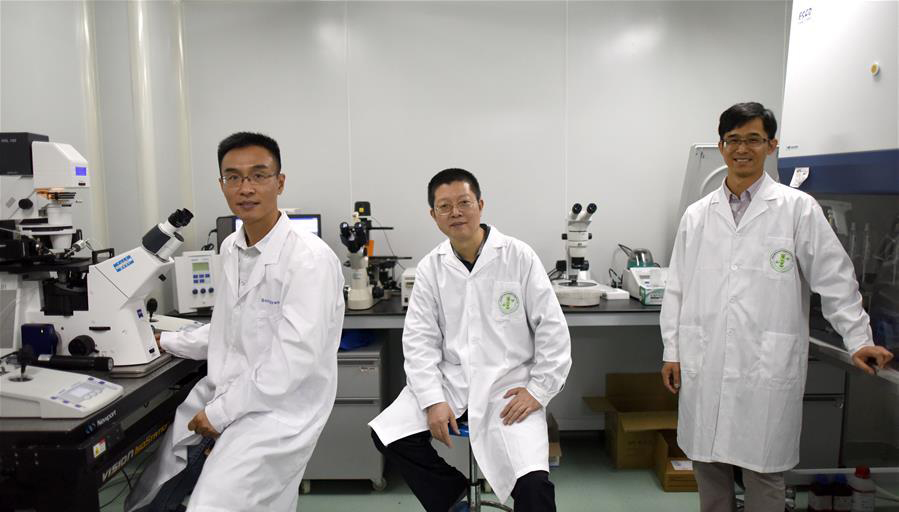Scholar: Public supervision required for genome editing

A Chinese group led by Huang Junjiu (R), an associate professor at Sun Yat-sen University, conducted pioneering research on editing hereditary pathogenic genes in human embryos in 2015, sparking global debate on genome editing.
Human Genome Editing: Science, Ethics and Governance was released by the US National Academy of Sciences and the US National Academy of Medicine on Feb. 14.
The future of genome editing, a new technology that has major implications for humanity, is being widely debated throughout the world. Particularly, there is rapid development of genome editing tools, such as CRISPR/Cas9, that enable scientists to edit the genome by erasing, substituting or adding partial DNA sequences.
The potential for human genome editing technology to tinker with genetics is a double-edged sword. Therefore, the formulation of technological criteria and ethical codes for pre-clinical studies on human embryo genome editing is an urgent task for all governments, international organizations and academics.
Qiu Renzong, a research fellow from the Institute of Philosophy at the Chinese Academy of Social Sciences, said, compared with the document released the previous year, the report this year opens the door somewhat for the application of genome editing technology on human reproductive cells in research and clinical treatment.
Zhang Xinqing, a professor from the School of Humanities and Social Sciences at the Chinese Academy of Medical Sciences and Peking Union Medical College, said ethical regulations on genome applications in basic studies, somatic cells as well as reproductive cells have become more restrictive.
The report did not argue for the technology to be barred completely from use in research on reproductive cell genome editing. However, the report recommended strict limitations on this application by establishing a sufficient ethical examination and supervision system, and it put forward 10 ethical principles that should be followed when doing clinical trials, Zhang said. The report devotes a significant part to calling for public participation in supervision of genome editing despite its strong technicality. Qiu said the policy-making process for important technology should be disclosed to the public, ensuring that the technology is not used for improper profit or applications that harm public interest.
Genome editing requires not only the hard work of scientists but also the support and supervision of scholars of humanities and social sciences. And active public participation is also essential, Qiu said.
The report suggests that public engagement is necessary at all phases and in all aspects of genome editing research. When researching a technology affecting all of humanity, public wisdom is needed for discussing, examining and managing the process, Zhang said.
Zhang said medical research facilities should examine genome editing programs before approving them. They should register and record the research and monitor the process. And ethics committees should be established to strengthen the ethical supervision of human embryo genome editing. Researchers should have more moral conscience and self-discipline in conducting genome editing, he said.
Besides, Zhang suggests that editors and reviewers of academic journals should follow ethical norms in publication, carefully examine the papers that deal with ethical controversies and provide ethics education for practitioners in genome editing, Zhang said. The journals should be supervised by the public and foster a scientific environment that encourages innovative, open, transparent, honest and responsible research, he said.
Zhang Chunhai is a reporter at the Chinese Social Sciences Today.

 PRINT
PRINT CLOSE
CLOSE